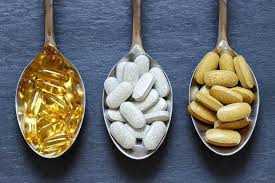Explore the World's Best Ideas
Join today and uncover 100+ curated journeys from 50+ topics. Unlock access to our mobile app with extensive features.
Supplements don't replace a healthy diet
Supplements are never a substitute for a balanced, healthful diet.
And they can be a distraction from healthy lifestyle practices that confer much greater benefits.
52
477 reads
Big business, little evidence
More than 90,000 products generate about $30 billion every year in the United States.
But even though supplements are popular, there is limited evidence that they offer any significant health benefits - the health benefits are negligible or nonexistent for the average, healthy person.
56
357 reads
Dietary supplements
This is an umbrella term that includes everything from vitamins and minerals to botanicals and biosimilar products.
For the most part, though, people use "supplement" to refer to an individual vitamin or mineral preparation or a multivitamin.
47
283 reads
Why people take supplements
- People often think of them as something extra they can do to be sure their basic nutritional needs are covered.
- There's also a possible placebo effect when taking supplements: People feel healthier if they do something they believe makes them healthy.
49
276 reads
When supplements bring benefits
Supplements prescribed by a doctor are helpful for people with certain medical issues.
Supplements can play an important role in some high-risk groups: adults diagnosed with osteoporosis, people with Crohn's disease or celiac disease, people with vitamin B12 deficiency, etc. Otherwise, it's best to get your vitamins and minerals from food and not a pill.
60
357 reads
IDEAS CURATED BY
Noelle H.'s ideas are part of this journey:
Learn more about health with this collection
Basic survival skills
How to prioritize needs in survival situations
How to adapt to extreme situations
Related collections
Similar ideas
2 ideas
New vitamin supplement study finds they may do more harm than good
theconversation.com
3 ideas
Dietary supplements: Sorting out the science - Harvard Health
health.harvard.edu
9 ideas
8 myths about vitamins and supplements
medicalnewstoday.com
Read & Learn
20x Faster
without
deepstash
with
deepstash
with
deepstash
Personalized microlearning
—
100+ Learning Journeys
—
Access to 200,000+ ideas
—
Access to the mobile app
—
Unlimited idea saving
—
—
Unlimited history
—
—
Unlimited listening to ideas
—
—
Downloading & offline access
—
—
Supercharge your mind with one idea per day
Enter your email and spend 1 minute every day to learn something new.
I agree to receive email updates





